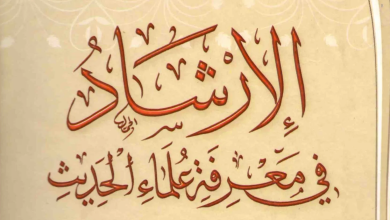An Explanation of the Principle, “Jarh is Given Precedence over Ta‘dīl”
The following piece is by one of the leading scholars of India in his time known as Shaykh Abdal Hayy al-Laknawi (d. 1304 AH). It is with regard to a principle in the Science of Hadith (Ulum al-Hadith) dealing with the issue of when the Jarh (disparagement) on a Hadith narrator is actually given precedence over Ta’dil (praise) of the same narrator at hand. It was discussed by al-Laknawi in his Al-Raf‘ wa l-Takmīl fi l-Jarh wa l-Ta‘dīl, and was translated by Shaykh Zameelur Rahman from England. With his permission the following has been posted here as this issue has been misunderstood and misapplied in this age just as it was in the time of al-Laknawi by certain quarters claiming to have knowledge of Hadith.
Quote:
When Jarh (narrator-criticism) and Ta‘dīl (narrator-accreditation) conflict with regards to a single narrator[1], in that some have criticised him and others have accredited him[2], then there are three views about this:
The first is that the Jarh is given precedence unconditionally, even if the Mu‘addils (issuers of Ta‘dīl) are more numerous. Al-Khatīb related this from the majority of the scholars, and Ibn al-Salāh, Fakhr al-Dīn al-Rāzī, al-Āmidī and other Usūlīs considered it correct, because the Jārih (issuer of Jarh) has greater knowledge which the Mu‘addil did not comprehend, and because the Jārih concedes to the Mu‘addil that which he reported of his apparent condition, except that he is explaining a concealed matter hidden to the Mu‘addil.
The second is if the number of Mu‘addils is more, Ta‘dīl will be given precedence, which Al-Khatīb related in al-Kifāyah as well as the author of al-Mahsūl, because the large number of Mu‘addils strengthens their case and the small number of Jārihs weakens their report. Al-Khatīb said: “This is an error from the one who supposed it, because even if the Mu‘addils are numerous, they did not express negation of what the Jārihs reported, and were they to express that, it would be a false testimony of negation.”
The third is that the Jarh and Ta‘dīl conflict, so neither of them will be preponderant except by something that makes it preponderant. Ibn al-Hājib related this.
This is how al-‘Irāqī explained it in Sharh al-Alfiyyah and al-Suyūtī in al-Tadrīb and others.
I say:
The foot of many of the scholars of our age has slipped with regards to what has been established by the verifying scholars that “Jarh is given precedence over Ta‘dīl,” due to their ignorance of the conditions and qualifications [of this principle], as a result of their false supposition that Jarh unconditionally – whichever Jarh it may be, from whichever Jārih it may be, with regards to whichever narrator it may be – is given precedence over Ta‘dīl unconditionally – whichever Ta‘dīl it may be from whichever Mu‘addil it may be with regards to whichever narrator it may be.
The matter is not as they suppose.
In fact, the principle of giving precedence to Jarh over Ta‘dīl is limited to when the Jarh is explained (mufassar)[3], as unexplained (mubham) Jarh is absolutely unacceptable in the correct view, so it cannot oppose Ta‘dīl even when it (i.e. Ta‘dīl) is unexplained.
This is proven by [the fact] that the Usūlīs discuss the issue of unexplained Jarh and they give preference to [the view of] the unacceptability of unexplained [Jarh], and shortly after or shortly before that they mention the principle of Jarh conflicting with Ta‘dīl and the precedence of Jarh over Ta‘dīl. This proves that their intent in this discussion is explained Jarh, not unexplained, since there is no sense to a conflict between the unacceptable and acceptable in the view of sensible people.
This is supported by:
The statement of al-Suyūtī in Tadrīb al-Rāwī:
And the statement of Hāfiz Ibn Hajar in Nukhbat al-Fikar and its commentary Nuzhat al-Nazar:
And the statement of al-Sindī in Sharh Sharh Nukhbat al-Fikar called Im‘ān al-Nazar:
And the statement of al-Sakhāwī in Sharh al-Alfiyyah:
And the statement of al-Nawawī in Sharh Sahīh Muslim:
And the statement of Hāfiz Ibn Hajar in the introduction to Lisān al-Mīzān:
The upshot is:
That which the words of the trustworthy ones indicate, and which the statements of the firm ones attest, is that if there is explained Ta‘dīl and Jarh with respect to one narrator, Ta‘dīl will be given precedence. And likewise, if there is unexplained Jarh and explained Ta‘dīl, Ta‘dīl will be given precedence. Giving precedence to Jarh is only when it is explained, regardless of whether the Ta‘dīl is unexplained or explained. Preserve this for it will save you from slipping and from confusion, and will protect you from humiliation and argumentation.
Al-Raf‘ wa l-Takmīl fi l-Jarh wa l-Ta‘dīl, Maktabah Ibn Taymiyyah, pp. 54-9
[3] Jarh may be unexplained (Mubham) or explained (Mufassar). Examples of Jarh Mubham (unexplained Jarh) are: “weak”, “unacceptable” and “unknown.” Examples of Jarh Mufassar (explained Jarh) are: “liar,” “one with poor memory” and “frequently erring”.
[4] Based on this and other passages, the correct view can be summarised in the following rule of thumb: “Jarh Mufassar is given precedence over Ta‘dīl Mubham, which is given precedence over Jarh Mubham, which is given precedence over the absence of Ta‘dīl.”
In other words, for a narrator whose Ta‘dīl was made, Jarh will only be accepted when it is Mufassar (explained). If it is not Mufassar, it will be rejected. If there is no Ta‘dīl of the narrator, Jarh will be accepted regardless of it being Mufassar or Mubham (unexplained).






